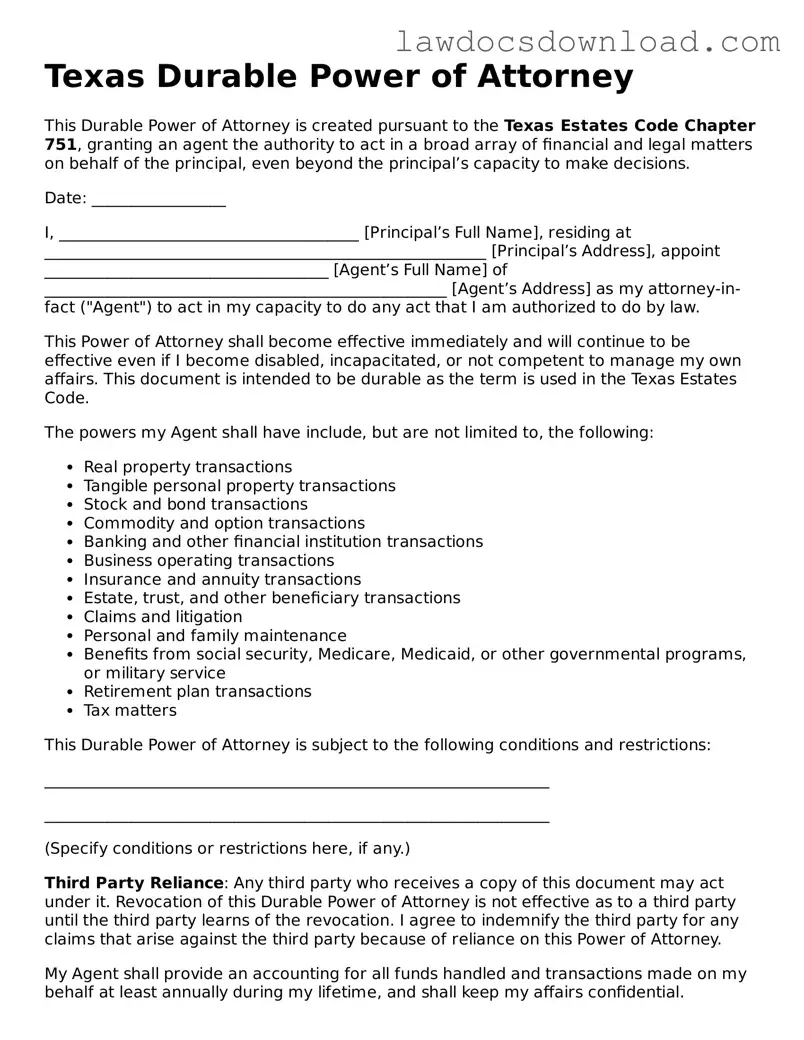Texas Durable Power of Attorney
This Durable Power of Attorney is created pursuant to the Texas Estates Code Chapter 751, granting an agent the authority to act in a broad array of financial and legal matters on behalf of the principal, even beyond the principal’s capacity to make decisions.
Date: _________________
I, ______________________________________ [Principal’s Full Name], residing at ________________________________________________________ [Principal’s Address], appoint ____________________________________ [Agent’s Full Name] of ___________________________________________________ [Agent’s Address] as my attorney-in-fact ("Agent") to act in my capacity to do any act that I am authorized to do by law.
This Power of Attorney shall become effective immediately and will continue to be effective even if I become disabled, incapacitated, or not competent to manage my own affairs. This document is intended to be durable as the term is used in the Texas Estates Code.
The powers my Agent shall have include, but are not limited to, the following:
- Real property transactions
- Tangible personal property transactions
- Stock and bond transactions
- Commodity and option transactions
- Banking and other financial institution transactions
- Business operating transactions
- Insurance and annuity transactions
- Estate, trust, and other beneficiary transactions
- Claims and litigation
- Personal and family maintenance
- Benefits from social security, Medicare, Medicaid, or other governmental programs, or military service
- Retirement plan transactions
- Tax matters
This Durable Power of Attorney is subject to the following conditions and restrictions:
________________________________________________________________
________________________________________________________________
(Specify conditions or restrictions here, if any.)
Third Party Reliance: Any third party who receives a copy of this document may act under it. Revocation of this Durable Power of Attorney is not effective as to a third party until the third party learns of the revocation. I agree to indemnify the third party for any claims that arise against the third party because of reliance on this Power of Attorney.
My Agent shall provide an accounting for all funds handled and transactions made on my behalf at least annually during my lifetime, and shall keep my affairs confidential.
This Power of Attorney shall remain in effect until my death, unless I revoke it sooner. I have the right to revoke or terminate this Durable Power of Attorney at any time, so long as I am competent.
Signed this _____ day of _______________, 20__.
__________________________________
[Principal’s Signature]
__________________________________
[Agent’s Signature]
State of Texas
County of _______________
This document was acknowledged before me on __________ (date) by ________________________________ [Principal’s Name] and ________________________________ [Agent’s Name].
__________________________________
[Notary Public’s Signature]
My Commission Expires: ___________

